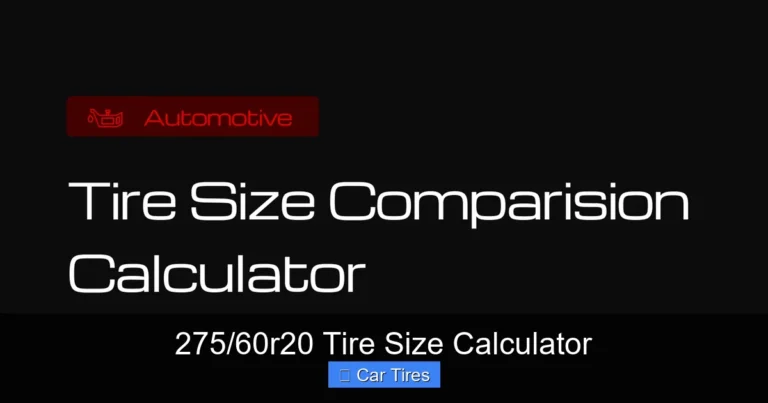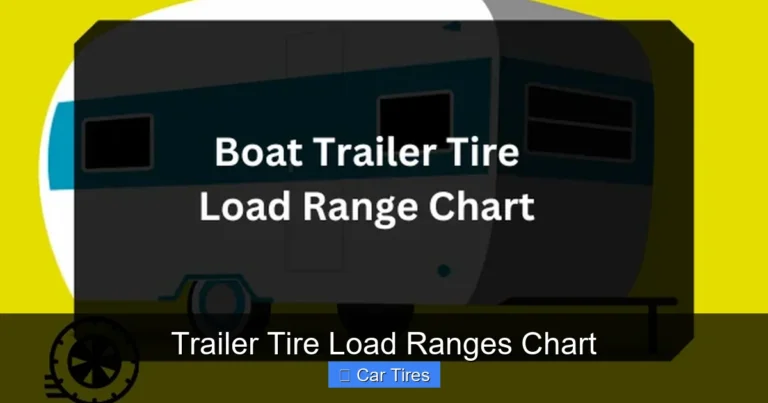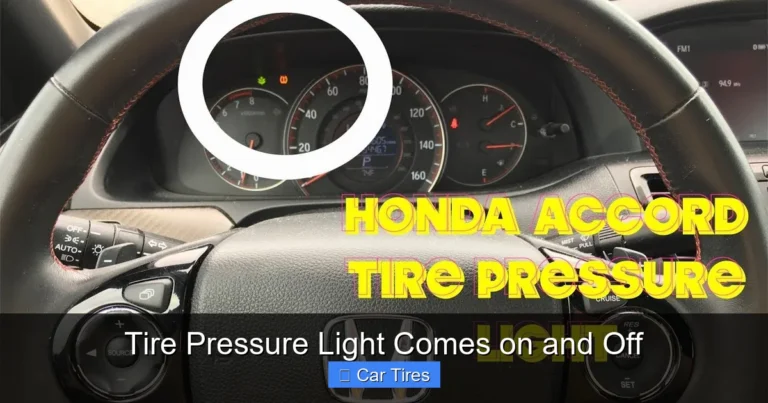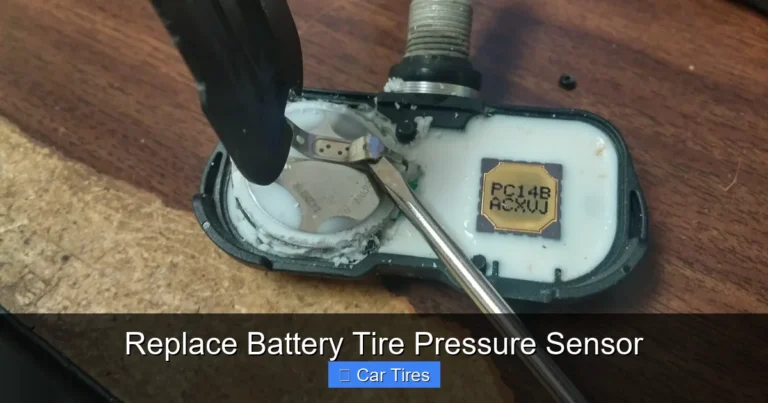Are Cooper Tires Good? My Honest Experience
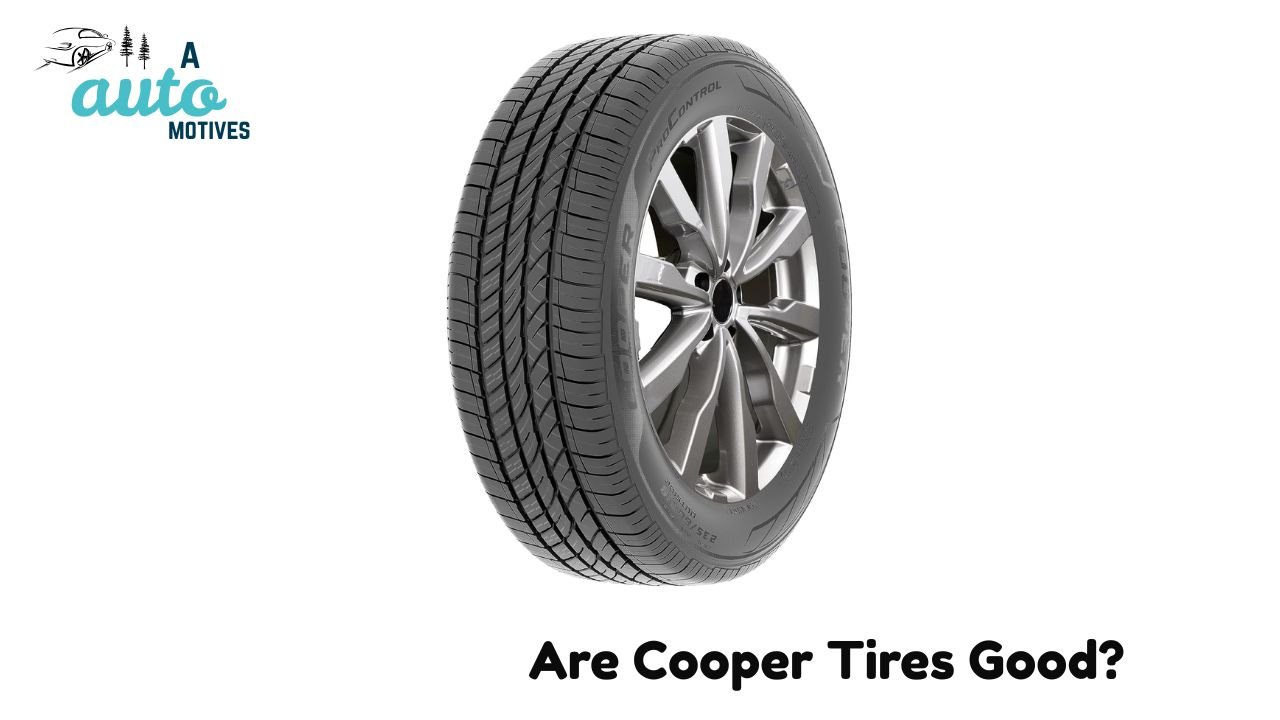
Picking the right tires can be surprisingly stressful. You’d think it’s as easy as choosing a brand and getting them installed—but no. Between the dozens of models, reviews, and promises of “ultimate grip,” I found myself spending nights reading tire forums and watching YouTube comparisons. After trying brands like Michelin, Goodyear, and even Continental, I landed on Cooper Tires. And honestly, they surprised me in more ways than I expected.
This article isn’t about fancy numbers or lab data. It’s about what really happens when you live with these tires day in and day out—driving through dry highways, wet streets, and unpredictable weather. I’ll walk you through how they performed, what stood out, and where they fell short. Hopefully, it’ll help you decide whether Cooper Tires deserve a place on your car.
In This Article
- 1 Performance Overview
- 2 Traction & Grip
- 3 Durability & Longevity
- 4 Ride Comfort & Noise
- 5 Fuel Efficiency
- 6 Handling & Stability
- 7 What I Like About Cooper Tires
- 8 What Could Be Better
- 9 Comparison With Competitors
- 10 Who Should Buy Cooper Tires?
- 11 Real-World Example: My Long Road Trip Test
- 12 Final Verdict: Are Cooper Tires Good?
- 13 FAQs: Are Cooper Tires a Good Choice?
- 14 Final Thoughts
Performance Overview
I’ve driven on Cooper Tires for nearly 25,000 miles now, covering everything from city traffic to long road trips across state lines. And here’s the thing—they’ve managed to hold their own impressively.
On dry pavement, they grip like they mean it. I could take corners confidently without that slippery feel that cheaper tires often give. When the rain hit, I paid attention to how they handled sudden braking and puddles. They didn’t disappoint. Hydroplaning? Minimal. Even when driving through a thunderstorm at 60 mph, my steering felt steady and predictable.
But no tire is perfect. On icy mornings, I noticed a slight slip when accelerating from a stop. Not dangerous, but enough to remind me that these aren’t true winter tires.
If I had to summarize their performance in one line: Cooper Tires are dependable daily drivers that can take on most weather conditions without breaking a sweat.
Traction & Grip
Let’s start with the most important part—grip.
Cooper Tires shine here, especially on dry and mildly wet surfaces. The traction feels solid, giving a sense of security that’s rare in mid-range tires. I once had to brake suddenly when a dog ran across the road in front of me. The tires grabbed the pavement instantly—no sliding, no panic. That alone earned my trust.
In heavy rain, they stayed composed. I tested them during a week of downpours, and even through large puddles, they resisted hydroplaning better than I expected. The treads are designed to push water out efficiently, and you can feel that engineering at work.
On snow, though, the story changes a bit. Light snow? Fine. But when the temperature dropped below freezing, and the road turned icy, I started to feel the limits. That’s not a knock against Cooper—they’re not marketed as winter tires—but it’s worth knowing if you live in harsh winter zones.
Still, for most people in moderate climates, these tires will give you all the grip you’ll ever need.
Durability & Longevity
Tire longevity is a big deal for me. I do long drives often, and replacing tires every year just isn’t practical. That’s where Cooper Tires quietly impressed me.
After crossing 20,000 miles, I inspected the tread. It was still deep and evenly worn, which told me two things: good quality rubber and solid construction. No cracking, no uneven bald spots. Just smooth, consistent wear.
I’ve seen other drivers claim they got 50,000–60,000 miles out of their Coopers with proper rotation and care. Judging by how mine look now, I’d believe it. These aren’t “throwaway” tires—they’re built to stick around for years.
It’s also worth mentioning that I’ve taken them on long, hot road trips where asphalt temperatures hit 100°F. Some tires soften up or show heat cracks under that stress, but Cooper Tires handled it like champs. That kind of resilience adds serious value.
In short: if you maintain them well, Cooper Tires can easily go the distance—both literally and figuratively.
Ride Comfort & Noise
I’ll be honest—I didn’t expect much in this department. I thought they’d feel average. But the first few weeks proved me wrong.
The ride was genuinely smooth. They absorbed bumps and potholes surprisingly well, especially on highways. My steering felt light, and even after long drives, I didn’t experience that “tired hands” feeling from vibration.
As for noise? They’re not whisper quiet, but they’re far from loud. At around 70 mph, I heard a soft hum, but nothing that interfered with music or conversation. It’s the kind of sound you only notice if you’re really listening for it.
I compared them with my previous Goodyear set, and I’d say Coopers are slightly quieter overall.
If you commute often or enjoy road trips, you’ll appreciate how balanced the comfort level is. They feel stable, cushioned, and dependable—like a good pair of running shoes that you forget you’re wearing.
Fuel Efficiency
Tires play a bigger role in fuel economy than most people realize. I was worried that the grip of Cooper Tires might come at the cost of mileage. Fortunately, the impact was minimal.
Before switching, my car averaged about 28.5 miles per gallon. After installing the Coopers, it dropped slightly—to around 27.9. That’s less than a 3% difference, which is pretty reasonable for tires that prioritize traction.
The reason behind it is rolling resistance—the force that your car’s engine has to overcome to keep the tires moving. Cooper seems to have struck a nice balance here. The tread design isn’t overly aggressive, so you get good grip without guzzling extra fuel.
If you’re obsessed with squeezing every drop of efficiency, there are more specialized “eco tires” out there. But if you just want dependable tires without major mileage loss, Cooper’s efficiency will feel perfectly acceptable.
Handling & Stability
One of the first things I noticed after switching was how stable the car felt—especially on highways. At higher speeds, the steering stayed responsive, and the tires held their line beautifully.
On winding backroads, I could feel the tread working. Even during quick lane changes or sudden turns, there was no sway or hesitation. That sense of control gave me confidence to push a little harder than I normally would.
I once took them on a scenic mountain route with tight corners and steep climbs. The grip stayed consistent from start to finish. No slip, no loss of control. Just smooth, reliable handling.
For everyday drivers, Cooper Tires provide the kind of predictability that keeps you relaxed behind the wheel. Whether it’s city traffic or open highways, they make the car feel connected to the road in the best possible way.
What I Like About Cooper Tires
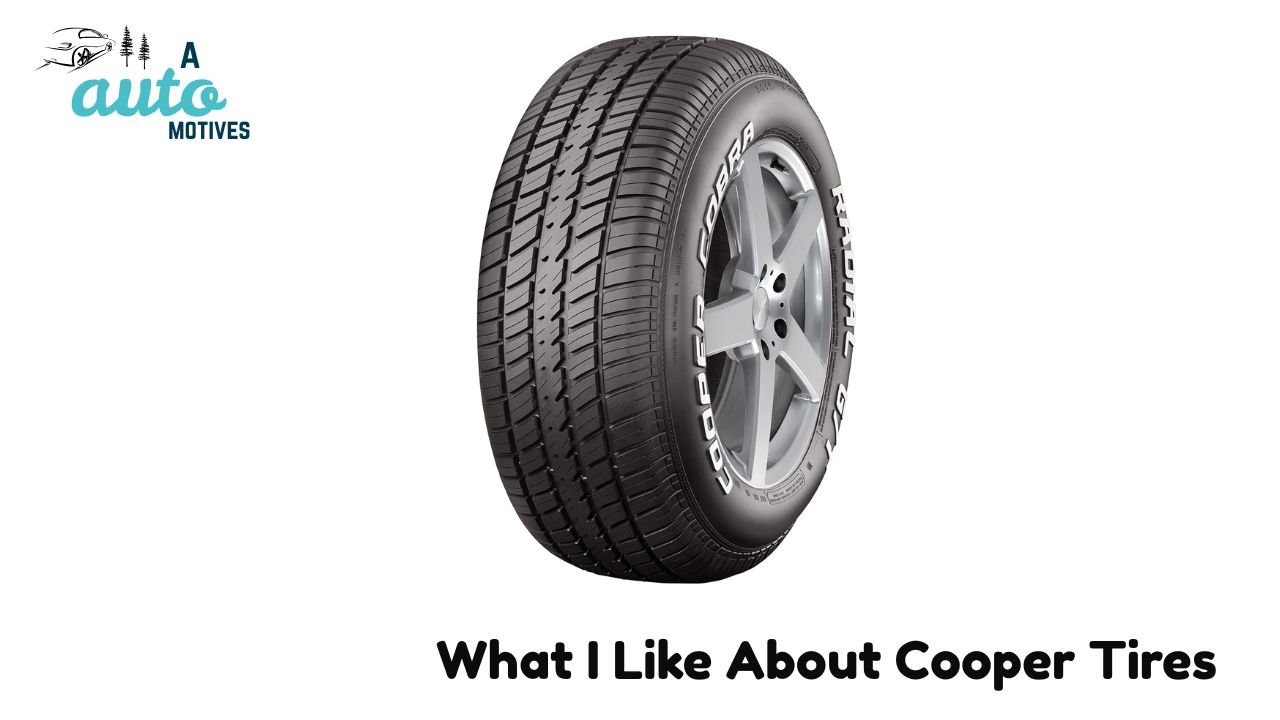
Now, let’s talk about what truly makes these tires worth considering.
1. Excellent all-weather traction – Whether it’s summer heat, monsoon rain, or mild winter chill, these tires deliver stable grip. I’ve driven through everything except extreme snow, and they’ve never let me down.
2. Long tread life – Even after tens of thousands of miles, the wear is minimal. It’s comforting to know you’re not throwing money at something that’ll fade in a year.
3. Smooth, cushioned ride – Highway drives are comfortable and steady. You feel fewer jolts and vibrations.
4. Reliable braking – They stop exactly when you need them to. No lag, no drama.
5. Balanced price-to-performance – Cooper isn’t the cheapest brand, but you get a lot for what you pay. They hit that sweet spot between premium performance and mid-range pricing.
What Could Be Better
No product is flawless, and Cooper Tires are no exception.
1. Not ideal for deep snow or ice – They’re fine for light winter conditions, but if you live in areas with heavy snowfall, invest in dedicated winter tires.
2. Slight road noise at high speed – It’s not intrusive, but it’s there. If absolute silence is your thing, you might notice it.
3. Availability issues – Depending on your region, some models can be hard to find. I had to order mine from a specialty shop since big-box stores were out of stock.
4. Slightly heavier feel in cold weather – On freezing mornings, the rubber stiffens a bit, making turns feel less fluid until the tires warm up.
Despite these minor drawbacks, none of them were dealbreakers for me. The positives easily outweighed the negatives.
Comparison With Competitors
I’ve tried several brands over the years—Michelin, Goodyear, Bridgestone, and Continental. Each has its strengths. Michelin, for instance, offers superb quietness and traction, but at a much higher price. Goodyear provides solid performance too, though I found them to wear faster under similar driving conditions.
When I compared Cooper with these premium brands, it became clear that Cooper aims to deliver 85–90% of the performance for about 60% of the cost. That’s a strong value proposition.
In terms of braking, Michelin does stop a few feet shorter, especially in the rain. But for daily driving, the difference isn’t dramatic enough to justify nearly double the price.
Handling-wise, Cooper Tires feel more “connected” than most budget brands and nearly as stable as mid-tier Michelin or Continental options.
If you want top-tier performance and can pay for it, Michelin might still edge ahead. But if you want a dependable, affordable tire that won’t compromise your safety or comfort, Cooper stands its ground proudly.
Who Should Buy Cooper Tires?
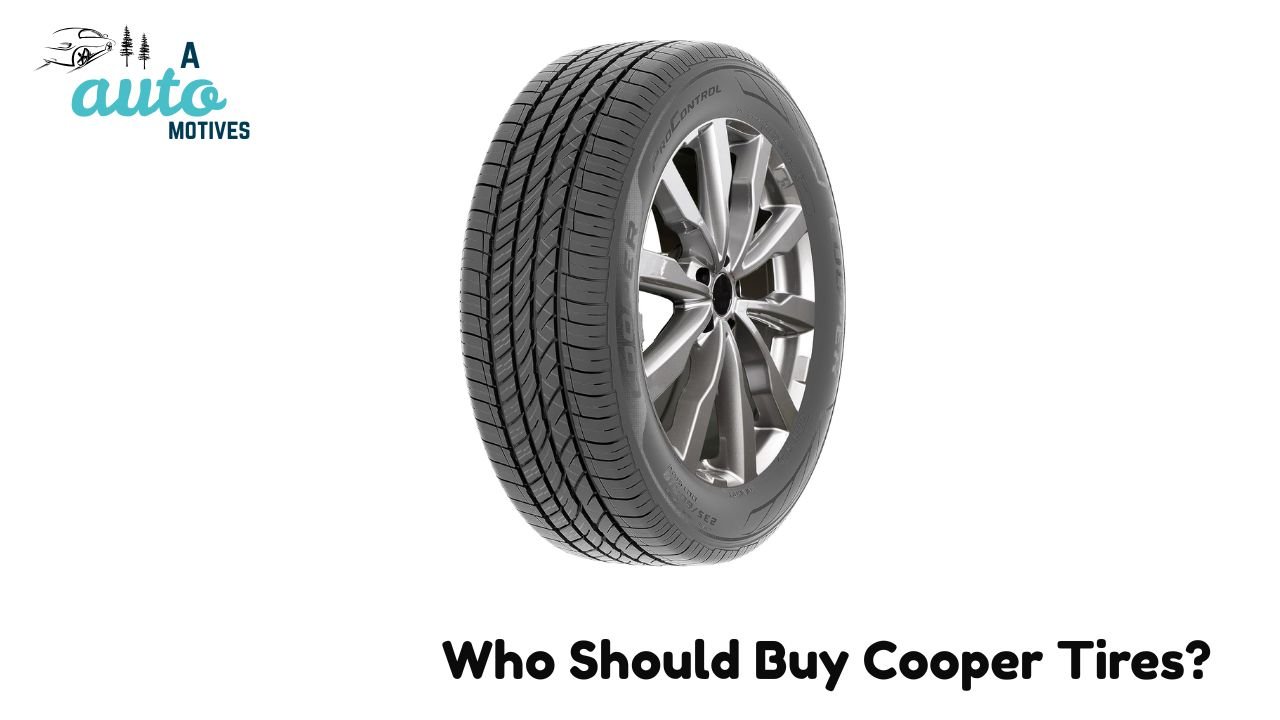
After all my testing, I’d say Cooper Tires aren’t for everyone—but they’re perfect for a certain kind of driver. Let’s break that down.
1. Everyday city drivers
If your daily routine involves commuting through city streets, occasional highway runs, and light weekend trips, Cooper Tires are ideal. They offer reliable grip, good comfort, and minimal noise—everything you need for routine driving without overpaying for features you’ll never use.
2. Highway travelers
For long drives and interstate cruising, these tires shine. They stay stable even at 75 mph and provide a smooth, predictable ride. I’ve done 400-mile trips with them, and the comfort stayed consistent the whole way.
3. Budget-conscious buyers
Let’s be real—premium tires can easily cost 30–40% more. Cooper sits comfortably in the middle range, giving you excellent performance for the money. If you don’t want to spend Michelin-level money but still care about safety and durability, this brand makes a lot of sense.
4. Light-weather regions
If you live somewhere that doesn’t get heavy snow or ice, these tires are a fantastic year-round option. For moderate climates, they handle every season with ease.
Now, on the flip side…
Who might skip them:
-
People living in areas with extreme winter conditions—if you’re often driving through thick snow or icy slopes, get dedicated snow tires.
-
Performance car enthusiasts—if you’re chasing razor-sharp handling and track-level cornering, Cooper might feel a bit too “civilized.”
For everyone else, though? Cooper Tires hit that perfect middle ground: dependable, long-lasting, and wallet-friendly.
Real-World Example: My Long Road Trip Test
A few months after installing them, I took my car on a 1,000-mile trip—mostly highway, some mountain roads, and a bit of rain. That trip told me everything I needed to know about these tires.
From the start, I noticed how stable they felt even when fully loaded with luggage. Acceleration was smooth, braking was firm, and there was a sense of quiet confidence in how they rolled.
Midway through the trip, we hit a storm. The highway was slick, and visibility was poor. I slowed down, expecting the tires to slip a little. But they didn’t. They cut through standing water like a plow through snow. That’s when I realized—they weren’t just “good for the price.” They were genuinely good, period.
At the end of the journey, there were no alignment issues, no uneven wear, no vibrations—just clean performance.
If you’re someone who values trust in your equipment, this kind of consistency matters more than numbers on a spec sheet.
Final Verdict: Are Cooper Tires Good?
After more than a year of driving, here’s my honest take.
Yes—Cooper Tires are genuinely good. They deliver dependable traction, solid comfort, and impressive durability without demanding a premium price tag. They might not be the flashiest or the absolute quietest tires on the market, but they’re balanced in all the ways that actually matter.
If you drive mostly on dry roads and highways, and occasionally face rain or light snow, they’re more than capable. I never once felt unsafe or dissatisfied while using them.
They also strike a rare balance between grip and longevity. Some tires wear fast to achieve better traction, but Cooper managed to stretch both lifespan and stability.
Would I buy them again? Absolutely.
They’ve earned my trust—not because they’re perfect, but because they’re honest tires that do exactly what they promise.
FAQs: Are Cooper Tires a Good Choice?
1. Are Cooper Tires good in the rain?
Yes. Their tread design helps channel water away quickly, reducing hydroplaning risk. Even in heavy rain, the traction remains consistent and confident.
2. How long do Cooper Tires last?
With proper maintenance—like regular rotation and correct tire pressure—they can last anywhere from 45,000 to 70,000 miles, depending on the model and driving conditions.
3. Are they quiet on the highway?
Relatively quiet. You’ll hear a soft hum at high speeds, but it’s far less noticeable than with many budget brands.
4. Do they affect fuel economy?
Barely. I noticed less than a 3% drop in fuel efficiency after switching, which is well within normal range for tires with strong traction.
5. Are Cooper Tires made in the USA?
Yes, many of their models are manufactured in the U.S., particularly in Ohio and Mississippi. Cooper has been an American brand for decades, known for its focus on quality and durability.
6. Are they good for winter driving?
They handle light snow fine, but they’re not true winter tires. If you face icy or snowy conditions regularly, go for a dedicated winter set.
7. What kind of warranty do they come with?
Most Cooper Tires include treadwear warranties ranging between 45,000 and 80,000 miles, depending on the model. That’s competitive for their price range.
Final Thoughts
At the end of the day, choosing tires comes down to trust—and after tens of thousands of miles, I trust Cooper Tires. They’re like that dependable friend who never shows off but always shows up. They may not be the loudest name in the tire world, but their performance speaks quietly and confidently for itself.
If you’re after a solid, mid-range tire that blends comfort, control, and longevity without draining your wallet, Cooper Tires are absolutely worth it.
They’re not perfect, but they’re practical—and that’s exactly what most of us need on the road.


